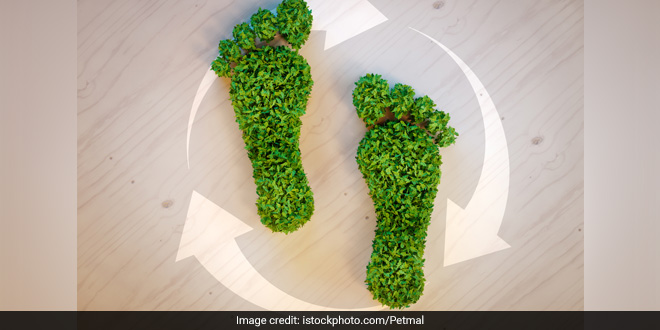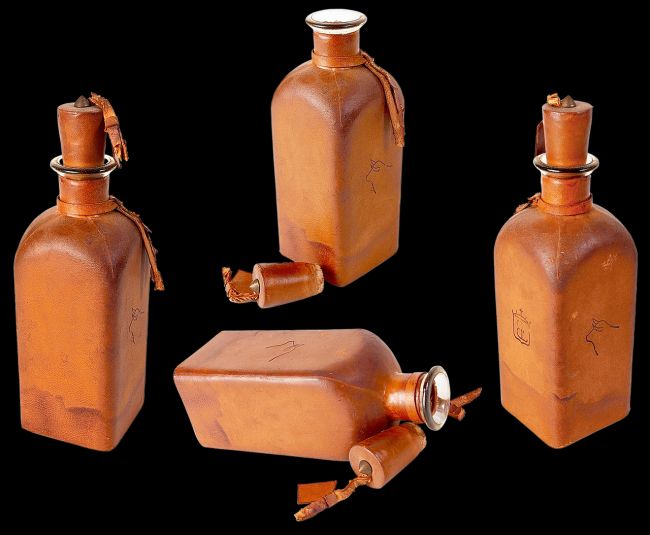New Delhi: Every single day we all dispose off, one or the other plastic item from our lives – be it empty shampoo bottles, other beauty and hygiene items, water bottles and more. This ‘use-and-throw’ culture is today chocking our planet with plastic and just plastic. To be precise, currently, about five trillion tonnes of plastic is floating in the world’s oceans. To give you a rough idea how much is this amount – it is equivalent to the size of Argentina. On the other hand, our country – India is the 12th biggest plastic polluter in the world. According to a 2017 study published in Environmental Science & Technology, a global journal, three of the world’s ten rivers which carry 90% of plastic to the world’s oceans are in India – the Indus, the Ganga and the Brahmaputra.
To put a full stop at the plastic pollution chain and save the planet, we look at some of the age-old sustainable habits that could make a small but important difference.
1. Clay Bottles Instead Of Plastic Bottles
According to the researchers and experts, if all plastic bottles we as humans use in a year were to stack up on top of each other, then one will be able to travel to the moon and back 10 times. The other thing is the fact that one plastic bottle takes up to 1,000 years to degrade completely, thereby polluting the planet for years. Moreover, plastic bottles produce toxic fumes upon incineration, meaning most plastic water bottles simply end up becoming litter.
What we can do to break this pollution chain, we can simply opt for clay bottles that not only make for a better and healthier alternative but also help keep the water cool.
Also Read: Goodbye Plastic, Hello Creativity: Five Easy Ways To Reuse Plastic Bottles
2. Use Coconut Fibre Instead of Plastic Scrubs For Washing Utensils
Ditch the use of plastic scrubbers for washing your utensils, instead make your own DIY zero-waste scrub at home. All you need is some coconut husk and you will be sorted.
With naturally anti-bacterial and grease-resistant qualities, coconut fibres is a green wonder that does not pollute the environment further and does not contribute to micro-plastics in our food chains like the traditional plastic scrubs. Moreover, unlike steel scrubbers, the coconut scrub doesn’t scratch stainless steel, enamelware or glassware. And after its use, coconut scrub can be composted.
3. Make Your Own Shampoo Instead Of Buying It From The Market
After PET bottles, the next most commonly found item in our dying landfills is shampoo bottles. So, the next time you go out to purchase another shampoo bottle from the market, stop and think how you can make a difference for the planet.
Instead of overloading our dying landfills with more plastic bottles, we can all opt to make our own DIY shampoo at home. All you need is some Shikakai, Reetha (Soapnut) and Amla (Indian Gooseberry) for it. At night, simply soak these things in about 500 ml of water, leave it overnight. Next day, in the morning, heat the mixture till it starts to boil. Next, simply let the mixture cool down. As a last step, simply mash the ingredients into a pulp. Strain and store — Voila! Your homemade shampoo is ready.
Also Read: Ditch Single-Use Plastic Items: Organisations That Are Providing Green Alternatives
4. Use Ghee As A Lip Balm Instead Of Buying
All the lip balms in the market today are packed in some sort of plastic container. To break free from this pollution chain, the simple step is to make a homemade lip balm for yourself. What to do – simply take a few spoonfuls of ghee and heat it up. Let the ghee cool down, then pour it into a container and let it solidify. And that’s set! Say hello to your homemade lip balm that is packed with vital fatty acids and works perfectly as a natural alternative to artificial lip balms.
5. Opt For Homemade Dishwashing Soap
Dishwashing soaps are wrapped in plastic packaging, moreover, are packed with chemicals that often leave traces on utensils and are rough on your hands. So, instead of buying it from a market, we can create a mix at home. Just get rock salt, sun-dried soapnuts (reetha) that have been powdered and mix it with some tamarind pulp. And your DIY dishwashing soap is ready to use.
NDTV – Dettol Banega Swachh India campaign lends support to the Government of India’s Swachh Bharat Mission (SBM). Helmed by Campaign Ambassador Amitabh Bachchan, the campaign aims to spread awareness about hygiene and sanitation, the importance of building toilets and making India open defecation free (ODF) by October 2019, a target set by Prime Minister Narendra Modi, when he launched Swachh Bharat Abhiyan in 2014. Over the years, the campaign has widened its scope to cover issues like air pollution, waste management, plastic ban, manual scavenging and menstrual hygiene. The campaign has also focused extensively on marine pollution, clean Ganga Project and rejuvenation of Yamuna, two of India’s major river bodies.





























